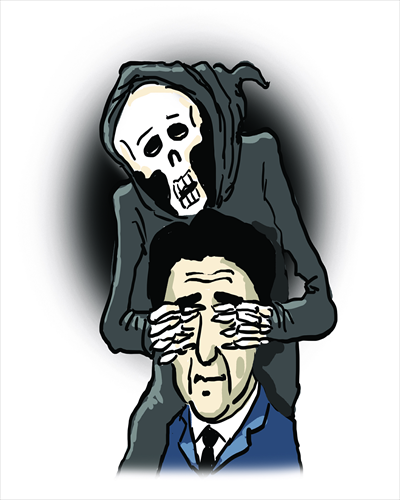Wartime humiliation still an important lesson today

Illustration: Liu Rui/GT
The First Sino-Japanese War (1894-95), which dealt China a devastating blow, began with the outbreak of the Fengdao sea battle on July 25, 1894. On the 120th anniversary of the start of the war, China still needs to reflect on the causes of its defeat.
Japan, through the Meiji Restoration (1866-69), embarked on a mercantile period of efficient capitalism, not only realizing the transition from a feudally organized society to a modern nation, but also consolidating national independence and accumulating national strength.
During the Meiji Restoration, Japan took the Western advanced military system as a model, introduced a modern conscription system and established a powerful standing army. The goal of the military buildup was clear-cut: to prepare for the country's imperialist expansion.
With the strong support from the government for private economy, Japan's capitalist economy was boosted, and a myriad of industrial enterprises prospered.
In a sharp contrast, the late Qing Dynasty (1644-1911) before the First Sino-Japanese War was not a national state in modern terms. Instead, the society was governed laxly by the emperor.
The country also lacked modernized army and equipment. Top army officials held the grip on the military, using national troops as private forces. The troops battled for their commanders rather than the country.
The Self-Strengthening Movement initiated during the late Qing Dynasty was aimed at economic and military modernization while maintaining the imperial system.
The movement wasn't spread nationwide, but was in the hands of a group of officials. There were but a handful of open-minded officials in coastal areas who introduced Western capitalist enterprises and factories, but the industrialization of China eventually withered, due to a lack of large-scale production, lackluster production capabilities, and poor quality and competitiveness.
Many Chinese scholars laid the bulk of the blame for China's defeat in the First Sino-Japanese War on corruption. When Japan launched the war in 1894, the Qing government was busy preparing for the celebration of Empress Dowager Cixi's 60th birthday.
To curry favor with the empress, the government used the money for building a Chinese fleet to restore the Summer Palace. The lack of a well-trained navy was one of the main causes of China's defeat in the war.
Today, the balance of power between China and Japan is changing. China is no longer a backward country. Nonetheless, Japan's strength shouldn't be overlooked.
The Abe cabinet has been on a perilous rightist path. Treating China as a potential enemy, the Abe administration has launched rounds of diplomatic offensives.
Japan is expanding its clout in Myanmar, forcing wedges between Myanmar and China. Chinese neighbors such as the Philippines and Vietnam, wooed by Japan, have somewhat ganged up with Japan to counter China.
China is facing a grim external environment that requires it to use history as a mirror and draw lessons from humiliation.
China's loss in the First Sino-Japanese War, the memory of one of the most humiliating defeats in history, illuminates that the result of war fundamentally depends on whether a country's system is advanced.
The style of leadership is also a determinant. A prosperous economy and powerful national strength are the guarantee of winning any battle.
We should also pay attention to the military-building, crackdown on corruption, and mobilization of the elites.
China is spearheading a reform package, especially in terms of fighting against corruption and empowering the military. At this moment, commemorating the 120th anniversary of the First Sino-Japanese War is of critical significance.
The author is a professor at the Institute of International Relations of China Foreign Affairs University. opinion@globaltimes.com.cn